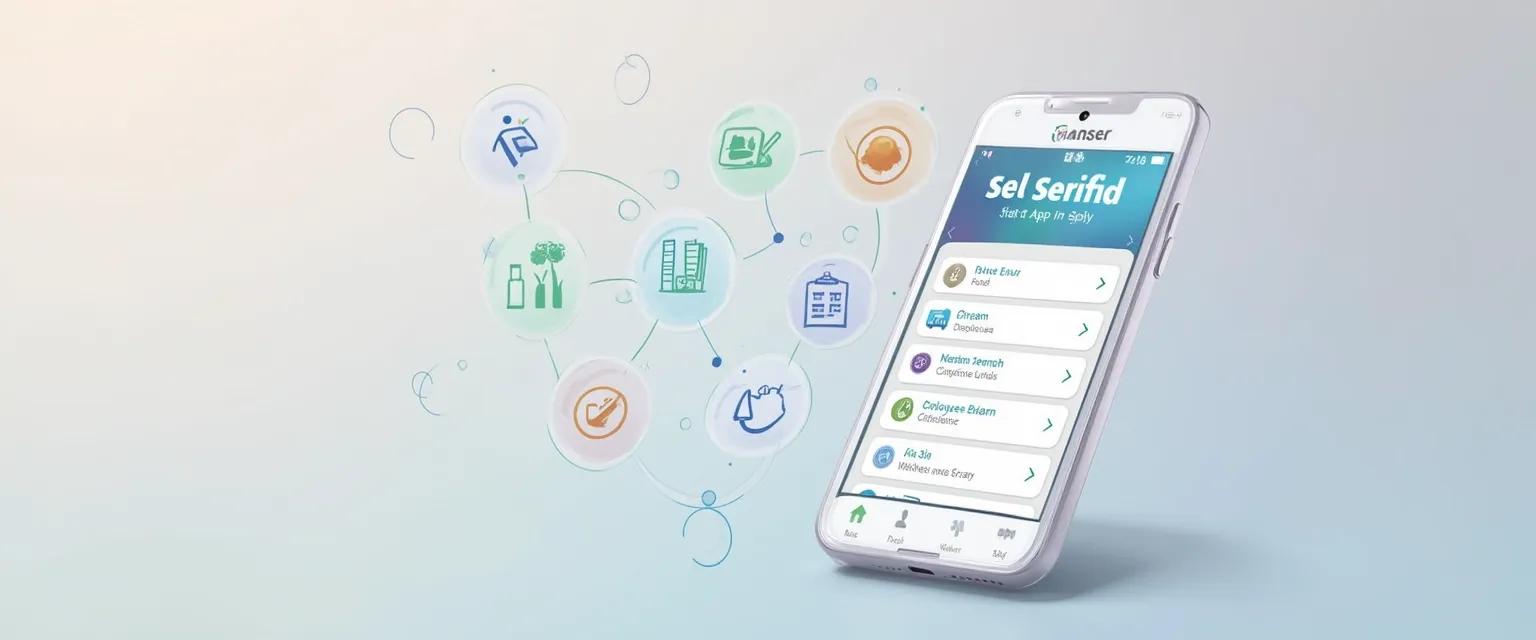7 Powerful Hr Apps For Employees To Self-Manage Benefits | Eq-At-Work
The workplace landscape has dramatically shifted, with HR apps for employees becoming the new standard for benefits management. Gone are the days when employees needed to schedule meetings with HR representatives for every benefits question or adjustment. Today's workforce demands more control, flexibility, and transparency—all delivered through intuitive HR apps for employees that put power directly in their hands.
Research from Mercer shows that organizations implementing self-service HR tools see up to 70% higher employee satisfaction with their benefits programs. These workplace wellness solutions not only save HR departments countless hours but also empower employees to make more informed decisions about their health, finances, and overall wellbeing.
Let's explore seven standout HR apps for employees that are revolutionizing how team members interact with their benefits packages, from healthcare selection to retirement planning and beyond.
Top HR Apps for Employees: Healthcare and Insurance Management
Modern HR apps for employees have transformed healthcare benefits from confusing paperwork to intuitive digital experiences. Leading the pack is Collective Health, which simplifies healthcare decision-making with personalized recommendations based on individual usage patterns and preferences.
Another standout, League, offers a comprehensive health benefits experience platform that centralizes all health insurance information. Employees can submit claims with a simple photo upload, track deductibles in real-time, and receive personalized health recommendations—all without HR intervention.
For prescription management, GoodRx integrates with many corporate benefit plans, helping employees find the lowest prices for medications. This stress reduction tool saves both money and the anxiety of navigating complex pharmacy benefits.
These platforms share common strengths: intuitive mobile interfaces, real-time cost transparency, and AI-powered recommendations that help employees maximize their healthcare dollars. Most importantly, they provide 24/7 access to benefits information when employees actually need it—not just during HR office hours.
HR Apps for Employees: Retirement and Financial Wellness
Financial wellness has become a cornerstone of comprehensive benefits packages, and several HR apps for employees now specialize in this critical area. BrightPlan offers a holistic financial wellness platform that helps employees visualize retirement goals while providing actionable steps to achieve them.
Guideline has revolutionized 401(k) management with its employee-centric approach. The platform demystifies retirement planning through interactive tools that show exactly how contribution changes impact future financial security. Its automated investment features remove the intimidation factor from retirement planning.
Origin stands out for its combination of financial planning tools and access to financial professionals. Employees can schedule virtual consultations about everything from retirement planning to student loan repayment strategies, making complex financial decisions more approachable.
What makes these HR apps for employees particularly valuable is their educational component. Rather than simply providing account access, they offer personalized learning paths that improve financial literacy and decision-making strategies, empowering employees to take ownership of their financial futures.
Choosing the Right HR Apps for Your Employees' Needs
Implementing the best HR apps for employees requires strategic consideration of your workforce's specific needs. Start by assessing your team's digital comfort level—even the most powerful app will fail if employees find it intimidating or confusing.
Integration capabilities should be a top priority. The most effective HR apps for employees connect seamlessly with existing HRIS systems, preventing data silos and reducing administrative overhead. Look for platforms with robust API capabilities and established integration partnerships.
User experience remains paramount. Before committing to any platform, involve a diverse group of employees in testing—what seems intuitive to tech-savvy staff might be challenging for others. The most successful implementations often involve employee advocates who can champion the new tools.
Measure success through concrete metrics: reduction in HR service tickets, increased benefits utilization, improved employee satisfaction scores, and time saved on administrative tasks. These data points help justify the investment and identify areas for continuous improvement.
The future of HR apps for employees lies in even greater personalization. As AI and machine learning capabilities advance, expect these platforms to provide increasingly tailored recommendations that anticipate employee needs before they arise. Organizations that embrace these employee-empowering HR apps for employees now will be well-positioned to attract and retain talent in an increasingly competitive marketplace.




